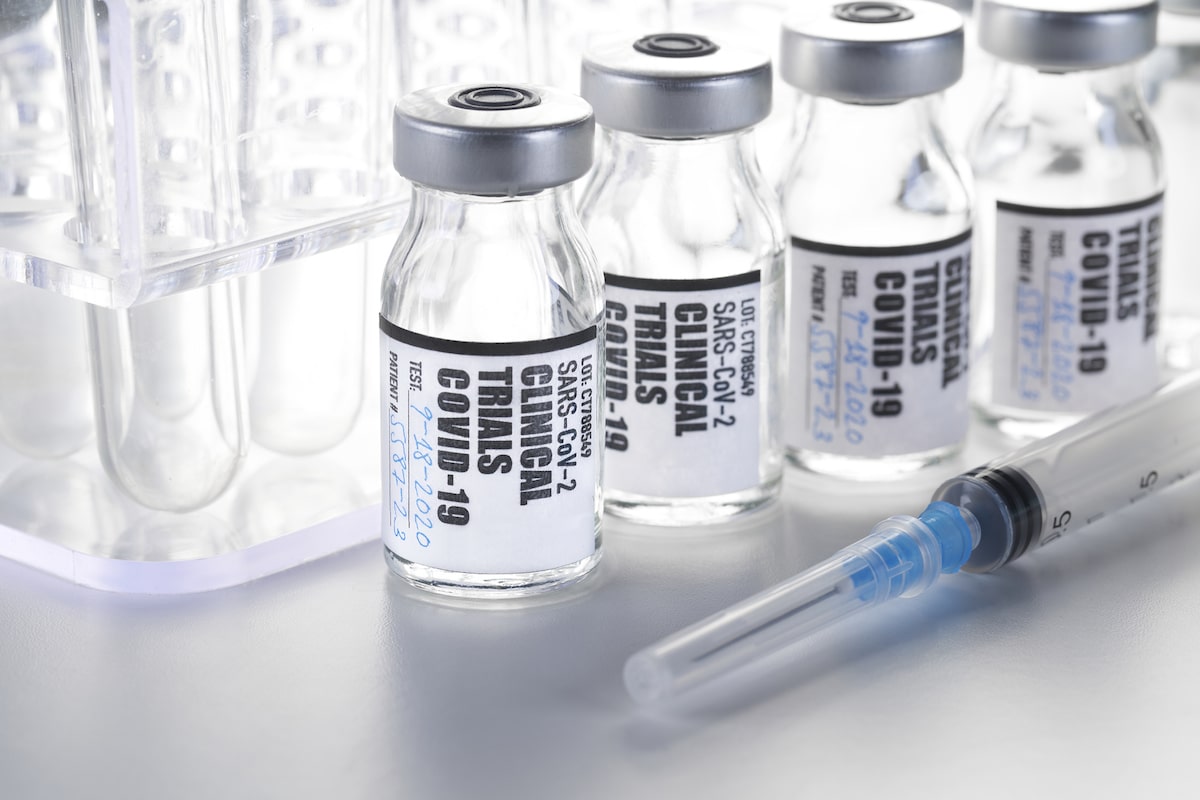<< Back
Which is More Effective, a Flu Vaccine or (so far) Pfizer’s COVID-19 vaccine?

November 09, 2020
The announcement Nov. 9 that early data now points to a COVID-19 vaccine being developed in record time by Pfizer and German biotech company BioNTech was almost as stunning as results showing a 90 percent effective rate.
The seasonal flu vaccine, by comparison, prevents illness 40 percent of the time. The COVID-19 vaccine report, from an independent data monitoring committee, surprised even infectious disease professionals.
“Absolutely,” said Keith Grant, Hartford HealthCare‘s Senior Director of Infection Prevention. “I was hoping for greater than 50 percent.”
The Pfizer-BioNTech collaboration is the first tested in the United States to provide late-stage data. In the study, now in Phase 3, participants who received two vaccine injections three weeks apart experienced 90 percent fewer cases of COVID-19 than participants given a placebo saline shot. Of the 44,000 volunteers in the study, only 94 got COVID-19.
Moderna, AstraZeneca and Johnson & Johnson are also developing COVID-19 vaccines in late-stage studies.
The Pfizer vaccine, and Moderna’s, use genetic material called messenger-RNA (mRNA) to create a protein from the virus recognizable by the body’s immune system. Once recognized, the body creates an attack system to neutralize the virus. The other vaccines in development use genetically engineered viruses or protein injected into the body.
Perhaps because of fears the vaccines were rushed because of political pressure, only 58 percent of people in a recent Harris Poll said they would get vaccinated as soon as the vaccine was available — down from 69 percent in mid-August. (That’s still better than the flu vaccine: Fewer than 50 percent of people 6 months or older got a flu vaccine during the 2018-19 flu season, according to the Centers for Disease Control and Prevention.)
“We need to regain public trust in vaccines with community engagement, as what good is a vaccine if nobody takes it?” said Dr. Faiqa Cheema, assistant director of general infectious disease with Hartford Hospital. “Seventy percent of the world’s population will need to be immunized by the COVID-19 vaccine to have ‘herd immunity’ and even after the vaccine program rolls out, wearing face-coverings and some form of social distancing will still be vital.”
Grant said he would not hesitate to take the vaccine as soon as it’s available — realistic expectations are fall 2021 — though it’s not for everyone.
“Yes for me,” he said, “but no for the little ones at this time. It needs more study for children. However, if we get to the more vulnerable population first we will be in a very good position to start with.”
Because an mRNA vaccine requires storage at minus-94 degrees, Pfizer faces logistical issues in worldwide distribution. It plans to use shipping containers that maintain the desired temperature for 10 days.
“Results from the Pfizer vaccine are very promising and very hopeful,” siad Dr. Cheema, “especially at a time when the daily average of COVD-19 cases has surpassed 127,000 per day. But we will need many other vaccines to meet demands, including vaccines that can be delivered to resource-limited settings. This vaccine by Pfizer is delicate to ship and store and logistically may not be the ideal vaccine in resource-limited settings.”
Pfizer noted it is not part of the Trump Administration’s Operation Warp Speed, nor has it taken money from the U.S. government to subsidize its study, though it agreed in July to provide the U.S. government 100 million doses of the vaccine in a $1.95 billion agreement.
“Remember, this is the minimum requirement for FDA clearance,” said Grant. “There has been great politicizing of this vaccine and the process of development, but the fact is this will be a great tool for us to care for our patients and, at 90 percent, we are in a very good position.”